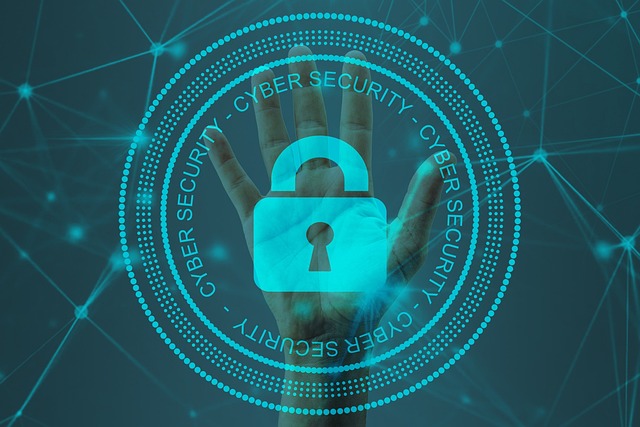The Growing Role of VPNs in Online Privacy and Security
Virtual Private Networks (VPNs) have evolved from specialized business tools to essential privacy solutions for everyday internet users. As cyber threats increase and digital surveillance becomes more pervasive, VPNs provide a crucial layer of protection that encrypts your internet connection and masks your online identity. Whether you're working remotely, streaming content, or simply browsing the web, understanding how VPNs enhance your digital security has become increasingly important in today's interconnected world.

What Makes a VPN Important for Protecting Your Personal Data?
A VPN creates a secure, encrypted tunnel between your device and the internet, making it extremely difficult for hackers, internet service providers, or government agencies to monitor your online activities. When you connect to a VPN server, your data is encrypted using advanced protocols like AES-256, the same encryption standard used by banks and military organizations.
This encryption process transforms your readable data into scrambled code that becomes virtually impossible to decipher without the proper decryption key. Even if cybercriminals intercept your data transmission, they would only see meaningless encrypted information rather than your passwords, credit card numbers, or personal communications. Additionally, VPNs hide your real IP address by routing your internet traffic through their servers, making it challenging for websites and online services to track your location or build detailed profiles about your browsing habits.
How Can a VPN Keep Your Connection Safe on Public Wi-Fi?
Public Wi-Fi networks in cafes, airports, hotels, and other public spaces are notoriously vulnerable to security breaches. These networks often lack proper encryption, making it easy for malicious actors to intercept data transmitted over these connections. When you connect to public Wi-Fi without protection, your device essentially broadcasts information that can be captured by anyone with basic hacking tools.
A VPN addresses this vulnerability by creating a secure connection even on unsecured networks. When you activate your VPN before connecting to public Wi-Fi, all your internet traffic becomes encrypted before it leaves your device. This means that even if someone successfully intercepts your data on the public network, they cannot read your emails, access your banking information, or steal your login credentials. The VPN essentially turns any public network into a private, secure connection.
Why Do Remote Workers Often Rely on VPNs?
The shift toward remote work has made VPNs indispensable for maintaining business security and productivity. Remote workers frequently need to access company resources, databases, and internal systems that are typically protected behind corporate firewalls. VPNs enable secure remote access to these resources by creating a protected connection between the employee’s home network and the company’s internal network.
Beyond accessing company resources, remote workers often handle sensitive business information that requires protection from cyber threats. VPNs provide this protection by encrypting all communications and file transfers, ensuring that confidential business data remains secure even when transmitted over home internet connections. Many companies now require their remote employees to use VPNs as part of their cybersecurity policies, recognizing that these tools are essential for maintaining data integrity and regulatory compliance in distributed work environments.
Can a VPN Help with Streaming and Accessing Global Content?
Geographic restrictions and content licensing agreements often limit access to streaming services and websites based on your physical location. Many streaming platforms offer different content libraries in different countries, and some services may be entirely unavailable in certain regions. VPNs can help overcome these limitations by allowing you to connect to servers in different countries, effectively changing your apparent location.
When you connect to a VPN server in another country, streaming services see the IP address of that server rather than your actual location. This can potentially grant access to content that might otherwise be unavailable in your region. However, it’s important to note that many streaming services actively attempt to detect and block VPN traffic, and using VPNs to bypass geographic restrictions may violate the terms of service of some platforms. Users should always review and comply with the terms of service of any streaming platform they use.
How Does a VPN Support Online Privacy and Freedom?
VPNs play a crucial role in protecting digital rights and maintaining online freedom, particularly in regions where internet censorship is common. By masking your IP address and encrypting your internet traffic, VPNs make it difficult for governments, internet service providers, or other entities to monitor your online activities or restrict access to information.
In countries with strict internet censorship, VPNs can help users access blocked websites, social media platforms, and news sources that might otherwise be unavailable. This capability supports the fundamental right to access information and communicate freely online. Additionally, VPNs prevent internet service providers from collecting detailed records of your browsing history, which could potentially be sold to advertisers or shared with government agencies.
| VPN Provider | Monthly Cost | Annual Cost | Key Features |
|---|---|---|---|
| ExpressVPN | $12.95 | $99.95 | High-speed servers, 24/7 support, 30-day guarantee |
| NordVPN | $11.95 | $59.00 | Double encryption, malware protection, large server network |
| Surfshark | $12.95 | $47.88 | Unlimited devices, ad blocker, budget-friendly |
| CyberGhost | $12.99 | $39.00 | User-friendly interface, streaming optimization |
Prices, rates, or cost estimates mentioned in this article are based on the latest available information but may change over time. Independent research is advised before making financial decisions.
The growing importance of VPNs in our digital lives reflects the increasing need for online privacy and security. As cyber threats continue to evolve and digital surveillance becomes more sophisticated, VPNs provide individuals and organizations with essential tools for protecting their data, maintaining privacy, and preserving online freedom. While VPNs are not a complete security solution on their own, they represent a crucial component of a comprehensive approach to digital privacy and protection in the modern internet age.




